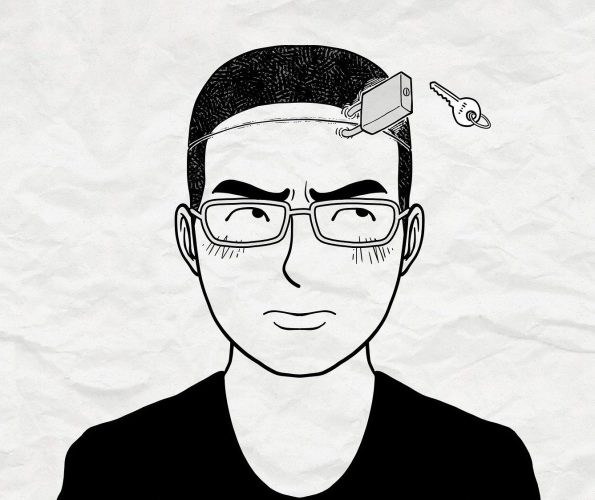
Pretty self-explanatory. Paying attention in class doesn´t just mean listening to what the lecturer is saying though. Having comprehensible and thorough notes can make a big difference when you get down to studying. Always come to class prepared: have a notebook with enough free space, all your pens, pencils, neon highlighters and anything else that might make it easier to jot down notes.
If you clearly divide lectures by page, it’ll be easier for your brain to classify and associate what you learnt within that session as well.
This is a handy one for when you´re preparing for anything: begin early. When it comes to college exams, it really all depends on how extensive they are. You know yourself best: How much time would you require to go through, say, 50 pages of text? Calculate how much time you realistically have to study for an exam or complete a written assignment and be sure to begin gathering and prepping your learning materials at least a week before that!
Rather than stressing until the last minute, prepare early and give yourself a few days off in between. You’ll be much more calm and relaxed.
Don´t have a planner yet? It´s about time you got one! Whether you choose to go old-school or digital, a planner will ensure that you stay on top of your schedule and can plan for all those big deadlines, well in advance. It will also make sure that you don’t miss any social engagements or important birthdays so you can avoid that awkward conversation all together.
Some people really don´t mind where they study and how that place looks. But trust us, the neatness and tidiness of your surroundings can affect your studying. From personal experience, I can say that I cannot even sit down and watch TV if I know I´ve got dirty dishes in the sink. A messy surrounding will cause for distraction and ensure that the last thing you do is face the learning materials for that one really boooring subject.
Before you sit down to study, make sure your room and your desk are cleared so you have plenty of mental and physical space to work.
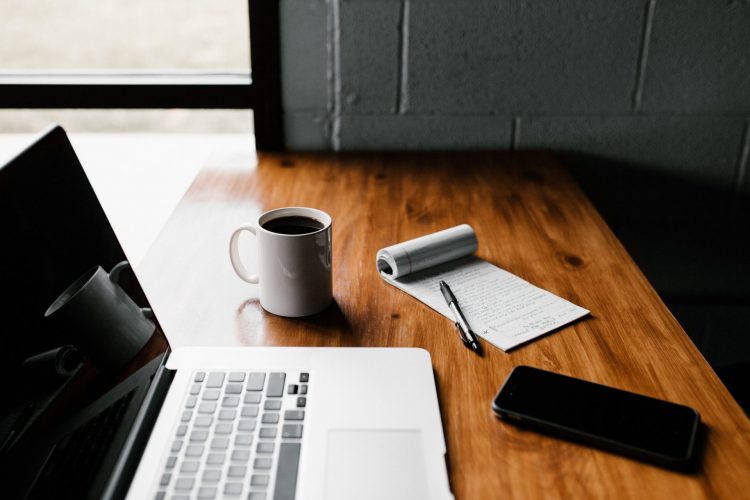
Ah, yes. Your phone- the biggest distraction of them all. ´Just one text´ or ´just one video´ is what you´ve probably said a thousand times in your life, before trailing off into a 5-hour marathon of funny cat videos. ‘Why does this always happen?’ you ask. All the major social media networks and websites, from Pinterest to YouTube, hire psychologists to help them create algorithms that will attract users and entice them to spend more time on their website/platform.
If you cannot muster up the strength to put the phone to the side and not check it every 5 minutes, there are plenty of apps that can help you. They will either lock your phone or lock certain apps for a desired period of time, so you can really focus on the tasks at hand.
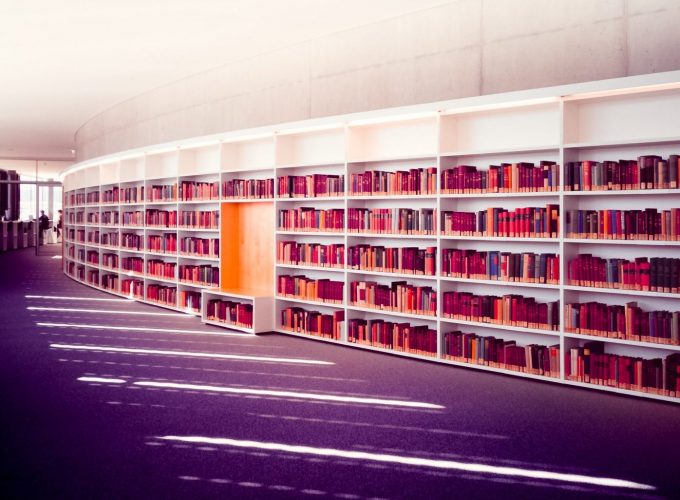
Everyone needs their peace every now and then. Some need it to cook, to clean, to work and some especially to study. If you don’t live alone and often find it hard to concentrate at home, the library is your best friend!
There nothing like a little camaraderie in the library to help boost your motivation and prevent you from getting distracted.
This is usually where many people have split opinions. Some enjoy learning to rock music while others need total silence, so take this one with a grain of salt. You must have heard of the Mozart effect – Mozart´s music helps calm and relax everyone and everything, from plants over cows to humans.
Classical music in general can help increase your concentration, at least in the short-term. However, as previously stated, classical music isn’t everyone’s cup of tea. In that case, try experimenting with different genres on your own and find something that is suitable for you. Typically, instrumental music of any kind is believed to be more suitable for studying than music with lyrics, since it´s less distracting.
When talking about learning styles, there are 4 that are usually mentioned. We´ll go through them real quick:
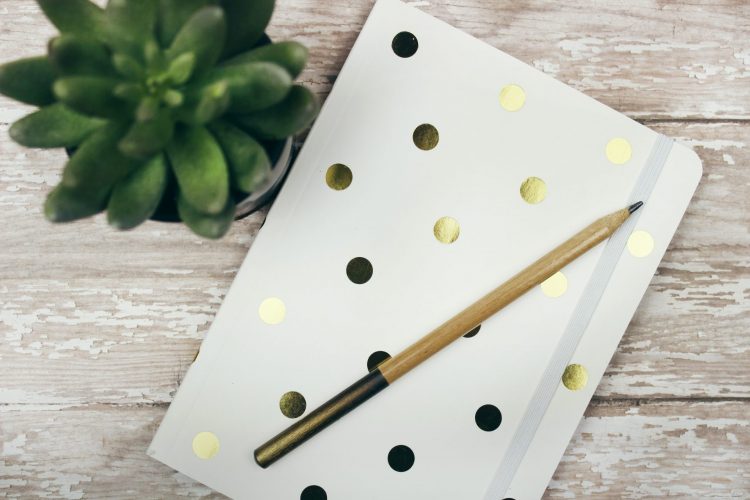
In today´s age of digitalization, everything can be done on your phone or tablet. Many students have switched completely to e-books and e-notes for studying. Even though it´s more practical because you don´t have drawers full of books, papers, notebooks and what not, it´s not necessarily the most effective option. Research has suggested that students require more repetition when trying to learn new material from a screen vs from traditionally printed material.
So, our advice would be to include more printed material into your study routine, not just because you´ll learn it faster but also because your eyes will get a much-needed break from blue light, which is emitted by digital devices.
Cram sessions are an integral part of most student´s college lives. It´s become synonymous with the college lifestyle really: You skip lessons, you party a lot and only study when you really have to. However. cram sessions are truly the absolute worst. They´re stressful, tiring and whatever you learn will be forgotten the second you have completed that test/exam.
You may pass nonetheless, but you certainly can’t count on retaining the knowledge on a long-term basis. Revising and studying regularly will ensure that all that information remains in your head and can be recalled when needed!
This method became widely known after a psychology professor´s 2009 study proved that you can remember information better and more efficiently when you use active recall. Active recall is a learning method where you need to stimulate the memory while learning. The method students typically use is a passive method: You read through the text and then re-read it until you believe you´ve remembered everything, or at least remembered enough to pass the test.
An example of active recall is the question-and-answer method: instead of re-reading the facts, you create a set of flashcards with questions that you then have to answer.
Each professor has their own style of creating tests. College professors often publish their old tests on university websites. Going through any sort of practice test is a good exercise for your memory and when you have the opportunity, try out your professor´s old exams for practice. This way you´ll get to know their particular style better. Some professors like essay-style tests, others rely solely on multiple choice exams. Through practice tests, you´ll have a clearer picture of what to expect.
A study also found that students who practiced with old materials before an exam, remembered the information they learned 50% better than the ones who didn´t. So, for better results, the answer can be pretty simple: take a practice test!
It can be very tempting to try and multitask when you´re a student, especially when it´s time to prepare for an exam and you’ve got a billion other things on your mind. While you might try it and be proud of yourself, it´s ultimately not a very good idea. You may think that you´re successfully focusing on 2-3 things at the same time, but basic biology says that your brain can in fact only truly focus on one thing at a time. When you´re studying and, for example, watching TV or texting, your brain´s focus actually jumps from one thing to the other.
You may have noticed this yourself: You’ll be deeply concentrated on a task and glance away for a minute or two to reply to a text and before you know it, you’re doing anything but that task. If you have got a bunch of things to do, simple prioritize what’s most important and begin there. The entertainment can wait until AFTER you’re done.
As we all know, lack of sleep can be connected to just about every physical and mental malfunction in your body, from heart disease to depression. The younger you are, the easier it is to get away with it but the lack of sleep catches up with us all eventually! But here is a cool fact. Did you know that you can basically also study in your sleep? That´s right! According to scientists, studying while sleepy and before going to bed will help your brain because the memory-consolidation process works best while you´re asleep. That way, your brain gets the rest it needs and adopts the information you’ve just read better than usual because you aren’t doing much otherwise.
Start sleeping on time and adopt your new favorite studying technique – studying in your sleep!
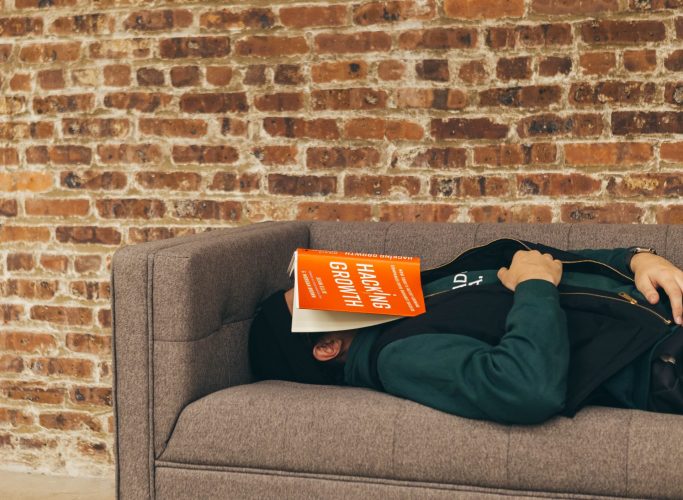
Did you know that the brain burns 20% of all body calories? That means that it needs carefully picked-out nutrients in order to keep its concentration levels high throughout the day. In recent years, these have become known as ´brain foods´. They help repair and build brain cells and lower the risk of degenerative diseases, such as Alzheimer´s disease. Some of the best brain foods: